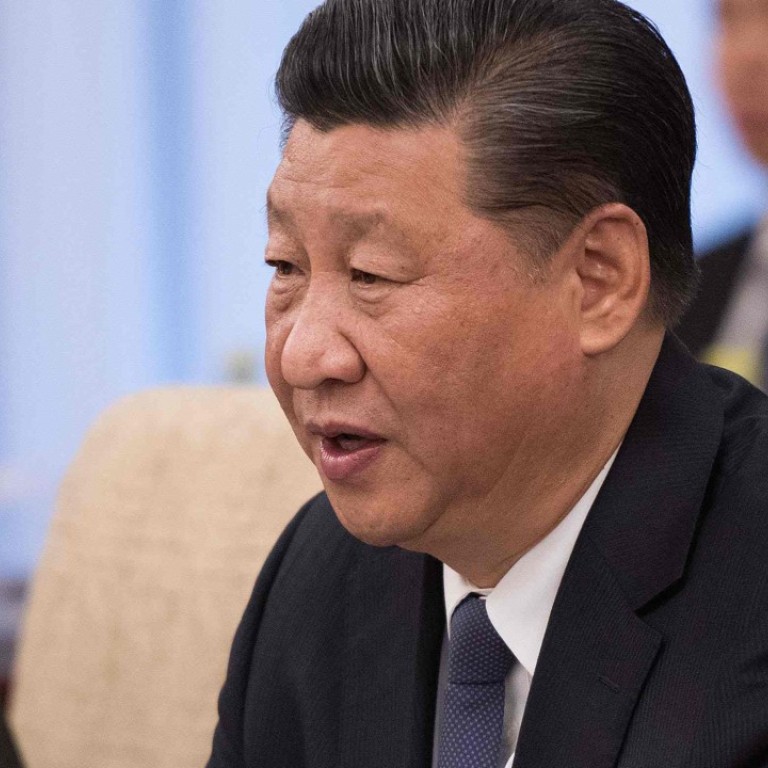
China’s top leaders prepare for worse as economy takes hits from US trade war
- Politburo offers renewed support for the private economy and stock market, and sees more downward pressure on growth ahead
China’s top leadership has outlined a new game plan for the private economy and the stock market as the country braces for further hits to the economy from the trade war with the United States.
The Communist Party’s Politburo, the 25-member supreme policymaking body headed by President Xi Jinping, agreed on Wednesday that there was “growing downward pressure” on the economy with “profound changes” in the external environment, state-run Xinhua news agency reported.
The statement was a shift from three months ago when the Politburo said there had been “noticeable” changes in the external environment.
It is the first time the leadership has showed public concern about China’s slowing economic growth since the trade war broke out with the US in the summer.
It followed weaker-than-expected business sentiment in the manufacturing and services sector in October, results led by sharp declines in export demand, according to the official purchasing managers’ index. The figures point to further deceleration down the road after the country’s headline growth rate slowed to its lowest level in a decade in the last quarter.
Watch: The origins and impact of the US-China trade war
The Politburo also said there were “a lot of difficulties with certain enterprises and the emergence of risks accumulated over long periods of time”.
“We need to attach great importance to this situation and be more forward-looking to respond in a timely manner,” the statement said.
“We have to enhance reform and opening up to focus on core problems with targeted solutions ... We must get our own things done and firmly seek high-quality growth.”
Separately, the Politburo said it had a “group study” on artificial intelligence on Wednesday, with Xi saying China must promote “healthy development” of its AI technology.
Trade war tightens credit for China’s small businesses, regulator warns
Xi said China must develop, control and use AI technology to secure the country’s future in the next technological and industrial revolution, underscoring Beijing’s unchanged ambition for technological dominance despite Washington’s allegations of “theft” and “unfair practices” related to intellectual property.
China must ensure that it “occupies the high ground of AI core technology” and could firmly keep the technology in its hands, Xi said.
JD Finance chief economist Shen Jianguang said the leadership appeared to have changed its view about the country’s economic outlook and was preparing for protracted fallout from the trade war. “This time they no longer described the economy as ‘stable with good momentum’,” Shen said.
Watch: US will ‘suffer more’ in trade war says Jack Ma
In Wednesday’s statement, the Politburo described economic performance in the first three quarters as “stable but with certain progress”.
According to the statement, the leaders decided to continue with the country’s “proactive fiscal policy and prudent monetary policy” and again underscored the need to “stabilise” employment, finance, trade, foreign capital, investment and expectations.
But they also sent an explicit message that Beijing would “unswervingly” support private enterprises – after their meeting three months ago, the Politburo put priority on infrastructure spending to bolster economic activity and did not mention the “private economy”.
China’s factory activity to hit 8-month low due to trade war
In addition, the Politburo said on Wednesday that China would try to “stimulate dynamism” in its stock market to promote the market’s “long-term healthy development”.
The leaders stressed that China must open its arms to foreign investors and “maintain legitimate interests of foreign businesses in China”.
There was also no word on any upcoming plenary meeting of the party’s Central Committee, which, according to party convention, should take place in the autumn. The meeting is usually held a year after the party’s national congress is largely seen as the most important full meeting of the party’s top 400 or so members, who gather behind closed doors at least once a year.



